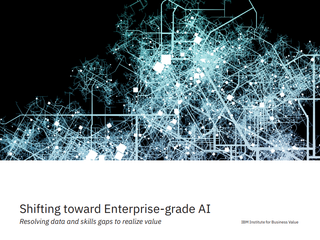Artificial intelligence spending in health care will see a $1.5 billion increase by 2025
Coronavirus outbreak proves just how important AI is in health care

If the coronavirus has proven anything, it’s that health care organizations can no longer ignore the role of artificial intelligence in their daily work. In a report released by ABI Research, AI spending in the health care and pharmaceutical industries is expected to increase from $463 million in 2019 to more than $2 billion over the next five years.
According to the report, companies like Alibaba, YITU, Graphen and Google DeepMind are already working to develop AI tools to detect the coronavirus and its evolution while tracking its geographical footprint and projecting future spread.
Beyond viral detection, AI is also likely to be adopted in bioinformatics. Amidst the current pandemic, this would mean analyzing the virus’ RNA sequence and using it to develop the right antiviral drugs. Tools from companies like Google DeepMind, Graphen and AI chipsets from vendors like NVIDIA and Intel aim to help accelerate drug discovery, development and testing to combat the pandemic.
"Artificial Intelligence is playing a key role in responding to the pandemic," shared Lian Jye Su, principal analyst at ABI Research.
"Now, no single drug can combat the virus effectively. In order to get ahead of the ever-evolving virus and to save as many lives as possible, new drug discovery, development, and testing processes need to be set up, as the conventional method is no longer suitable," Su continued.
There’s no doubt the coronavirus pandemic will encourage pharma companies and health care authorities to take stock of the lessons learned during the virus’ spread. With the projected increase in spending, organizations will likely be steadfast in enhancing their investments in AI research and development to better predict the emergence and spread of viruses
Get the ITPro. daily newsletter
Receive our latest news, industry updates, featured resources and more. Sign up today to receive our FREE report on AI cyber crime & security - newly updated for 2024.





